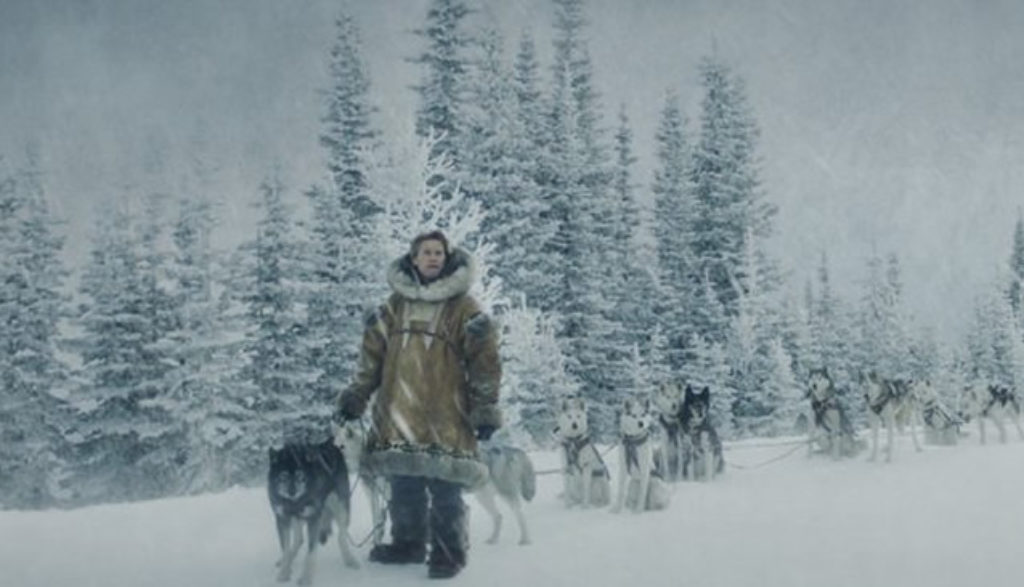
In 1925 there was a deadly outbreak of diphtheria that threatened to kill the children of Nome, Alaska. A small, secluded town near the Arctic Circle, Nome was a hard place to get to at any time. But in the dead of winter, it was almost entirely cut off from large cities like Fairbanks. The only hope of getting critical medication to the town was by dogsled.
But as a deadly, ominous storm approached, the chances of receiving help even in this time-honored way seemed implausible. That is, until Leonhard Seppala became the first man, later joined by other mushers, to trek the Alaskan tundra with his pack of dogs and lead champion, Togo.
Eyeing a 640-mile round trip at 60 degrees below zero, Seppala ventured out into inconceivable conditions to attempt what no man had before. And what he encountered and achieved was only made possible by his sheer willpower and, of course, man’s best friend.
Seppala is a brave man to his core. Although other men help him through his journey, Seppala is the first man to volunteer to brave a storm that nearly kills him and his dogs. But nothing deters Seppala or his four-footed best friend, Togo.
Togo is a brave canine. Resilient and tenacious, Togo leads Seppala and the rest of his pack through perilous situations and refuses to quit. It is evident that Togo is not only a warrior but a beloved friend to both Seppala and Seppala’s wife, Constance.
Constance, for her part, is a patient woman that finds value in Togo, the underdog, before Seppala sees Togo’s potential. Constance urges Seppala to see the positive in difficult situations and to try things that make him uncomfortable. She is a supportive and kind wife who truly loves her husband.
Seppala jokes about the fact that he married a “soft” Belgian woman, but this characteristic—unusual in the hard wilderness of Alaska—is one of the reasons he loves and cherishes his wife. Although he’s not always quick to show his affection, it’s clear Seppala loves and adores his wife and he even tells her so a few times.
Seppala apologizes after losing his temper with a friend. Kind people house and help Seppala and other mushers along the way. Later, they bring Seppala many gifts to show their appreciation.
Constance tells the mayor to pray that the teams return home safely. Seppala jokes that even a saint, like St. Francis of Assisi, would shoot Togo due to his unruly behavior.
Seppala and Constance lie in bed together, fully clothed. There, and elsewhere, the couple kisses and hug. Constance jokes about all the other lovers she has.
There isn’t much violence in this flick but there are quite a few perilous scenes that might be too “scary” for the littlest of viewers.
Seppala and his dogs encounter many near-death situations that they’re able to overcome; They trek up a mountain and nearly fall off the edge. They cross a large body of frozen water that begins to crack while they’re sledding over it. They journey through perilous whiteout conditions and continue on even while injured and bleeding (we see Togo’s bloodied paw and Seppala’s scratched, bare chest).
Seppala, before becoming attached to Togo, wishes that the dog would die; his wife sarcastically jokes about drowning him to “speed up the process,” although of course she is joking to reinforce her point. Togo jumps through a window, breaking the glass and cutting himself. A woman cries when she believes Togo is near death. A group of men talk about the perils of mushing, like getting frostbite and nearly dying. Sick, crying children flood the hospital as the diphtheria outbreak worsens.
“D–n” and “h—” are each used once. Togo is called a “daft mongrel” and a “devil” a few times.
A man sips on hard liquor at a town meeting. Constance offers a visitor some whiskey. A sign in town advertises whiskey and cigars.
A group of men bet on dog races.
Growing up, Balto was one of my all-time favorite movies. That’s the name of the most famous dog that took part in the 1925 Serum Run; he even has a statue in New York City’s Central Park. And that dog, along with his driver, Gunnar Kaasen, did indeed cover the last leg of the journey. But I never knew that Balto wasn’t really the story’s main hero until I watched Togo.
This Disney+ live-action original turns the story of Balto on its head and presents the true champion of the 1925 diphtheria outbreak, an event that inspired the classic Iditarod dog sled race. It is compelling, engaging and riveting from start to finish. At least for those who can appreciate its content.
Even though this movie is well-made, visually engaging and action-packed, it might not be enough to keep the littlest of viewers hooked (there’s no song or dance to be found here). And the many perilous scenes could be a bit scary for young eyes.
But besides the peril and the two profanities heard, this film is one that could very well become a classic that teaches viewers about the importance of bravery, love and selflessness all through the life of a canine.

Kristin Smith joined the Plugged In team in 2017. Formerly a Spanish and English teacher, Kristin loves reading literature and eating authentic Mexican tacos. She and her husband, Eddy, love raising their children Judah and Selah. Kristin also has a deep affection for coffee, music, her dog (Cali) and cat (Aslan).